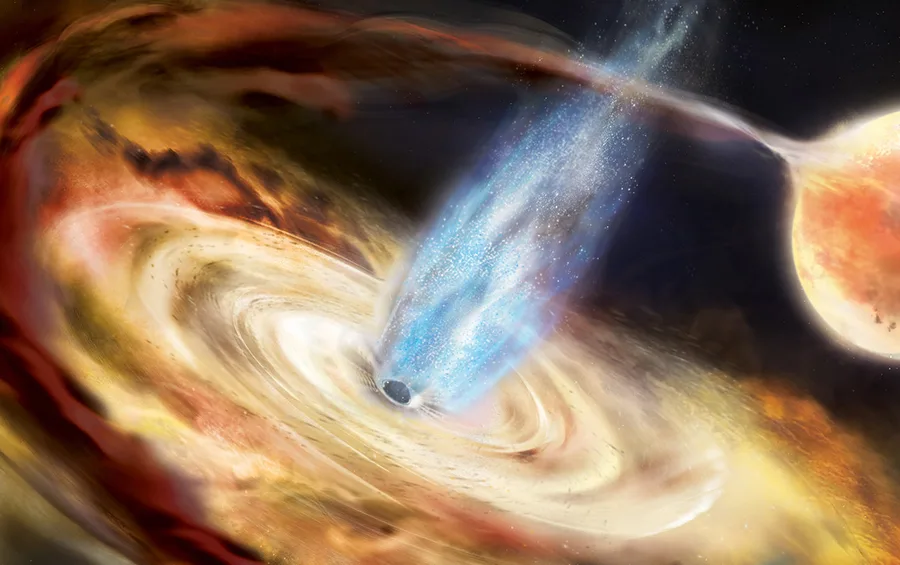 A team of MIT scientists is looking for black hole echoes in an effort to shed some light on the regions of spacetime that largely remain a mystery to us. See, black holes only show any semblance of activity when they feed on gas and dust from one of their orbiting stars. When they do, they give off bursts of X-ray light that echo off the gas being consumed and which illuminate their surroundings. That’s what a black hole echo is. While it’s technically an X-ray echo, the team worked with MIT education and music scholars to turn the emission into audible sound waves you can listen to below.
For their new study, the astronomers developed an automated search tool called “Reverberation Machine” to comb through data gathered by NASA’s Neutron star Interior Composition Explorer, the X-ray telescope aboard the ISS. Their algorithm identified 26 black hole X-ray binary systems, which are systems with a star that’s being consumed by a black hole at times. Ten of them are close enough for the echoes to be observable, and eight were previously not known to emit echoes.
A team of MIT scientists is looking for black hole echoes in an effort to shed some light on the regions of spacetime that largely remain a mystery to us. See, black holes only show any semblance of activity when they feed on gas and dust from one of their orbiting stars. When they do, they give off bursts of X-ray light that echo off the gas being consumed and which illuminate their surroundings. That’s what a black hole echo is. While it’s technically an X-ray echo, the team worked with MIT education and music scholars to turn the emission into audible sound waves you can listen to below.
For their new study, the astronomers developed an automated search tool called “Reverberation Machine” to comb through data gathered by NASA’s Neutron star Interior Composition Explorer, the X-ray telescope aboard the ISS. Their algorithm identified 26 black hole X-ray binary systems, which are systems with a star that’s being consumed by a black hole at times. Ten of them are close enough for the echoes to be observable, and eight were previously not known to emit echoes.
So what did the team find out by analyzing the echoes? They found that the black holes initially go through a “hard” state upon feeding, wherein it forms a corona of high-energy photons and launches a jet of high-energy particles close to the speed of light. This state lasts for several weeks. After one last high-energy flash when the corona and jet die out, the black hole enters a “soft,” low-energy state.
Visit hardcover book printing homepage for more details.
The scientists believe that these findings can help explain how supermassive black holes at the center of galaxies can help shape their formation. As Erin Kara, assistant professor of physics at MIT, said:
“The role of black holes in galaxy evolution is an outstanding question in modern astrophysics. Interestingly, these black hole binaries appear to be ‘mini’ supermassive black holes, and so by understanding the outbursts in these small, nearby systems, we can understand how similar outbursts in supermassive black holes affect the galaxies in which they reside.”
Comments
No comments yet. Be the first to react!